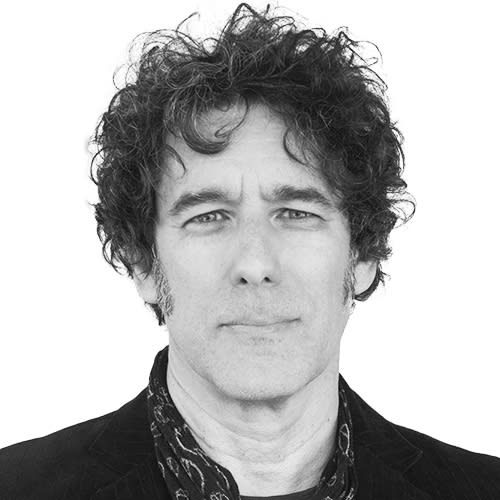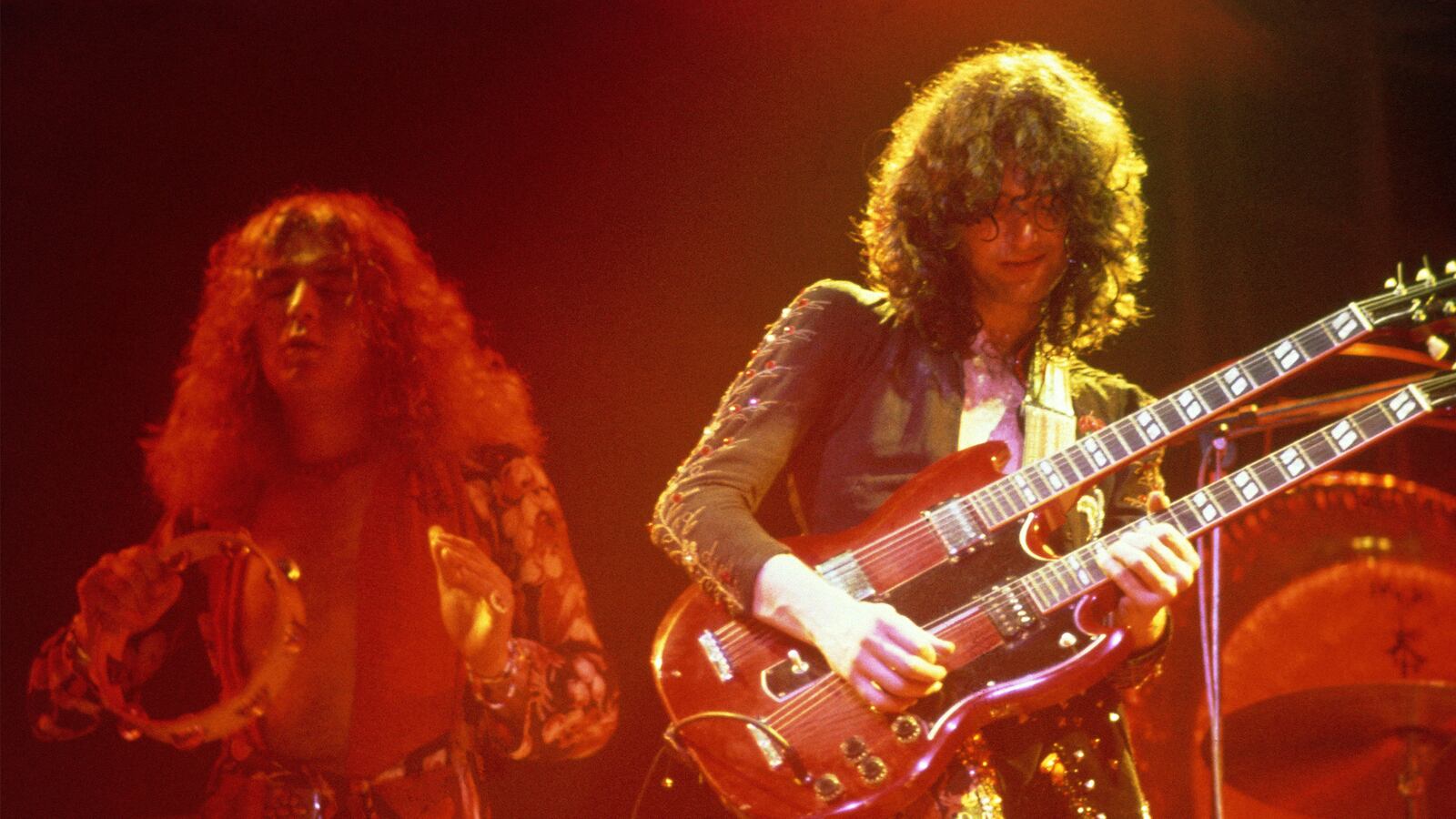“Led Zeppelin was a creative force that you can’t just snap your fingers and create,” Jimmy Page tells me when I ask why the band didn’t continue in 1980 after the death of John Bonham, and why he doesn’t expect them to reunite again as they did at London’s O2 in 2007. “It was a blend of these four master musicians, and each of us were important to the sum total of what the band was. I like to think that if it had been me that wasn’t there, the others would have made the same decision not to carry on. Besides, we couldn’t just get somebody in there and say, ‘Do this, this way?’ That wouldn't have been honest or of the same creative nature that we had always striven for. And it’s why we still have only done it properly once."We’re midway through our hour-long chat about the latest—and final—batch of deluxe reissues from the Led Zeppelin catalog, and I’m seated across from Page in his elegant hotel suite sharing a coffee. It’s truly striking how sharp Page’s memory is for details from the hazy ’70s, when Led Zeppelin were rock gods among men. He’s quick to correct dates, the working titles of songs, studios, you name it. He brushes off questions about drug use and the occult, not to mention the nagging legends of the band’s days on the road with aplomb, anticipating the questions and firmly, but graciously, setting his boundaries. Still, Page is well aware that fans pour over every morsel of news about a potential reunion.
But as he sees it, it’s just not in the cards.
“We tried it a few times,” he says of the various attempts at a reunion over the years. “It always seemed to be done in a hurry and it never worked. That’s why the O2 show was done with such intent. We rehearsed loads so that Jason—John’s son—felt like he was part of the band and not just some novelty. We all needed it to be that way. But I can’t foresee doing it again, because we all have to agree and agree for the right reasons.”
Page is referring, it seems, to singer Robert Plant’s unwillingness to revisit his Led Zeppelin days. And, now that the reissues are out of the way, the legendary guitarist is looking forward to recording some new music of his own.
“I’ve been totally focused for the past few years on getting the remasters right and then promoting them,” Page says. “But on July 31, when the last batch of remasters comes out, I’ll be able to exhale and think about doing something new. I’ll be able to think about the guitar, and recording new music—because I’ve already gotten music written—and I’m really looking forward to that and really focusing on it.”
Page is sharp, funny and dashing, but more than anything, it’s obvious how proud he is of what Led Zeppelin, the band that was his brainchild, achieved. Yes, Jimmy Page is a bigger Led Zeppelin fan than you can ever hope to be, and who better to be at the helm of the band’s legacy?
It’s no surprise, then, that he’s keen for fans and critics to reevaluate Coda, the album the band released after Bonham’s death, especially now that it’s been expanded to three discs.
“For people who want a new Led Zeppelin album, well, here it is,” Page says, with a wry smile.
At the time of its release, in the shocking aftermath of drummer John Bonham’s death, and owing to its hodgepodge nature (it contained tracks that spanned the band’s career), the album was both loved and hated.
“I think fans expected—wanted—more tracks from the sessions for In Through The Out Door, or maybe that had been recorded after that,” Page says. “They wanted us to finish tracks that had us playing with Bonzo. But sadly those didn’t exist.”
When I tell Page how, on its initial release, Coda felt like the band’s first official bootleg—providing a glimpse into the band’s creative process similar to what he’s done with the companion discs for the band’s recent reissue campaign—he seizes on the idea.
“Absolutely,” Page agrees. “It was a contractual album. It was put to me that there was an album owing to the record company. I was like, ‘Oh god,’ you know? But if it’s owing, it means they wanted it yesterday. I didn’t want to face doing it. But knowing that we had “Bonzo’s Montreux,” that was recorded between Presence and In Through the Out Door to fit in the middle—that Bonzo and I had worked on, as a centerpiece—made it work for me. Obviously we didn’t have John Bonham, but we did have John Bonham as an orchestra. That seemed so natural and fitting. Coda was a very difficult album to piece together, but it was meant to be the mother of all codas, a celebration, and a way to bring a lot of fun to people.”
Now, after 14 months of deluxe reissues of the Led Zeppelin catalog, with the core albums remastered by Page himself, the band will release its last three studio albums—Presence, In Through the Out Door, and Coda—in remastered and deluxe versions. Page, who also compiled single companion discs for each release that mirrored the original albums’ content as closely as possible, granting the listener insight into the making of each album, seems proud of his achievement, and the praise the packages have received.
“From my point of view, the companion discs needed to stand on their own,” Page explains of the reissue campaign. “They needed to be of that sort of stature. When we began this it was hard to explain to people, because no one had ever done anything like this before, where they revisited each album and created companion discs with outtakes that were from the time of the making of each album, and took you inside the creative process. We knew it wasn’t just a few things thrown together. We knew the time that had gone into it. But it was hard to explain that when we started this. But now that everything is out there, people understand it, and the response has been phenomenal. So it’s like, mission accomplished. It’s cool.”
And how involved were his former bandmates, Robert Plant and bassist/keyboardist John Paul Jones, in revisiting the catalog, and did the idea of making new music ever come up?
“Robert had some tapes of rough mixes, and some lyrics that he contributed to the books, and I played them both everything along the way,” Page says. “But I was the producer, so I knew what was there [in the vaults] and I had the vision for the project, I suppose, so they left me to it.”
There wasn’t really time, or reason, to talk about other things, Page says. Still, the nine remastered albums and companion discs are a remarkable achievement, and a welcome addition to the catalog for any Led Zeppelin fan. Still, Page seems most proud of the underdog of the bunch, Coda.
“When I started to think about it originally, we wanted to do something in the best taste possible, under the circumstances,” Page explains. “Obviously some people were disappointed, because they’d have liked a new album rather than something which was posthumous, and they didn’t want John Bonham to not be around anymore. But who did, man?”
Thirty years later, when it came time to approach the companion discs for the band’s albums, Page knew he wanted Coda to be the centerpiece—the “new” Led Zeppelin album fans had clamored for for so long.
“When I was mapping the whole project out, I’d already made up my mind that Coda was again going to be a huge celebration of everything,” Page says. “Purely by the fact of making Coda a double, I really wanted to put out just about everything [in the vaults]. I knew I was going to finish with two companion discs for the last one, with all the studio stuff that people might have heard about, the stuff that helped create the mythology of Led Zeppelin. So here it is, folks. I’m giving it all to you!”




